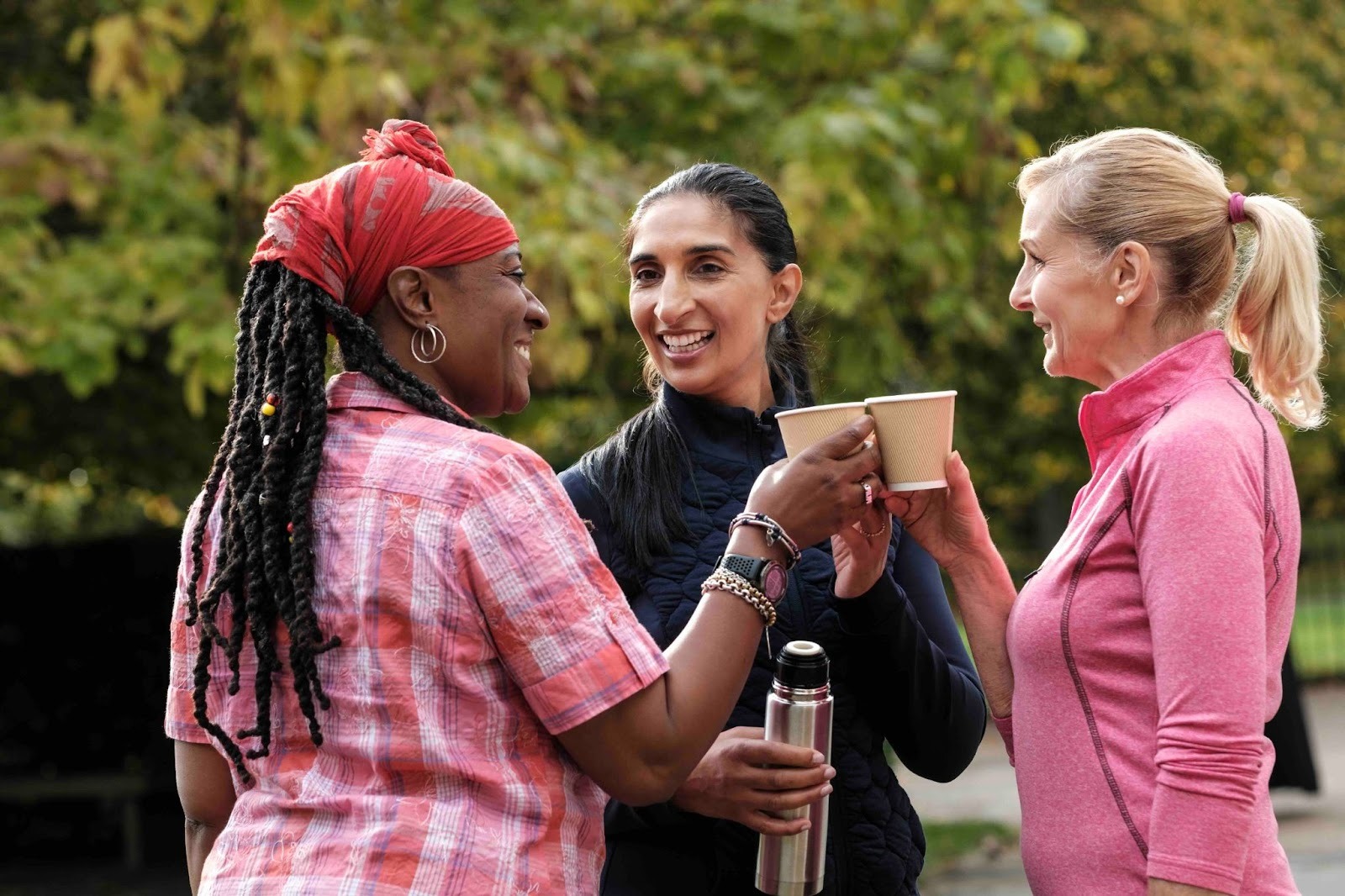National Family Caregiver Awareness Month 2025: Honoring the Heart of Caregiving

Each November, the United States observes National Family Caregiver Awareness Month, a time to acknowledge and honor the individuals who provide care, comfort, and connection to their loved ones every day. These individuals are the invisible backbone of care, often balancing work, family, and the emotional toll that comes with caregiving. In 2025, this recognition feels more important than ever, as the number of Americans serving as family caregivers continues to rise.
Caring for a loved one is one of the most meaningful acts of compassion, but it also comes with profound challenges. This month reminds us that behind every strong care plan is a human being who deserves to be seen, supported, and appreciated.
The Role of a Family Caregiver
A family caregiver is anyone who provides unpaid assistance to a loved one who is aging, ill, or living with a disability. Their duties go far beyond medical care; they manage daily routines, handle paperwork, schedule appointments, and provide emotional stability in moments of uncertainty.
Today, caregiving looks different than it once did. With an increasing number of multigenerational households and adults caring for both children and aging parents, the realities of family caregiving are more complex than ever. According to AARP, over 63 million Americans identify as caregivers, and many juggle full-time jobs while providing an average of 20 hours of unpaid care each week. These numbers underscore the importance of acknowledging and supporting this vital role in society.
The Significance of National Family Caregiver Awareness Month
Caregiver Awareness Month was established to shine a light on the millions who give their time and hearts to others without expecting anything in return. It is more than a celebration; it’s a call for understanding, advocacy, and action. This month presents an opportunity to amplify the voices of caregivers, advocate for policy changes that benefit them, and promote more accessible caregiver support resources.
Organizations, communities, and workplaces across the country participate by hosting recognition events, offering free workshops, and sharing stories that showcase the human side of caregiving. Each effort helps validate the experiences of those who often feel invisible in their caregiving journeys.
Challenges Family Caregivers Face Every Day
Behind the compassion and resilience of a family caregiver lies a demanding and often exhausting reality. Caregiving can impact every aspect of life, both emotionally and physically, as well as financially.
Emotional Toll
Caring for someone you love can be rewarding, but it can also lead to chronic stress, guilt, and isolation. Many caregivers suppress their own emotions to stay strong for others, which can eventually lead to burnout or depression. Recognizing these emotional challenges is the first step toward finding balance and healing.
Time and Financial Strain
The average family caregiver spends thousands of dollars out of pocket annually, often sacrificing personal savings and career growth. For working caregivers, this can mean missed promotions or reduced work hours. Without adequate caregiver support, the financial pressure can become overwhelming.
Navigating Healthcare Systems
Understanding medical terms, insurance forms, and healthcare procedures can be overwhelming. Many caregivers serve as advocates in hospital rooms and appointment waiting areas, ensuring their loved ones receive quality care. However, this advocacy comes at the cost of mental fatigue and a constant sense of vigilance.
Stories That Inspire: Real Caregiver Experiences
Every family caregiver has a story. Some are filled with humor and small victories, while others reveal the heartbreak and persistence it takes to keep going. One mother caring for her adult son with autism shared that the most challenging part wasn’t the logistics, but the loneliness, and wanting others to understand without needing to explain. Another caregiver, supporting her father with Alzheimer’s, found joy in rediscovering old memories through photos and music. These stories remind us that caregiving isn’t only about responsibility, it’s about love expressed through action.
If you’re a caregiver, sharing your experience can help others feel less alone. Caily invites you to share your story at www.caily.com/tell-your-story to bring visibility and understanding to what it truly means to care.
How to Support Family Caregivers
Support for caregivers can come from anyone: family members, employers, or neighbors. Small gestures matter more than most realize, but meaningful support often requires a combination of emotional understanding, practical help, and systemic change.
As an individual, you can offer respite by giving them a few hours of rest, sending a meal, or simply listening without judgment. Acknowledging their effort is often the emotional lift they need. Encouraging them to take time for themselves, helping with errands, or providing transportation can also make an enormous difference in reducing stress.
Friends and family members can check in regularly, not to ask about the person receiving care, but about the caregiver themselves. A simple “How are you doing?” can be an invitation for honesty and relief. Compassion and patience create safe spaces where caregivers feel seen and supported.
In the workplace, employers can show appreciation by implementing flexible schedules, remote work options, or paid family leave. Recognizing the dual roles many employees carry improves both morale and productivity. Beyond policies, leadership can cultivate a culture that normalizes caregiving, through wellness programs, mental health support, and open dialogue about family responsibilities.
Healthcare providers also play a vital role. By including caregivers in care discussions and providing educational materials or support referrals, they can help bridge gaps between professional and family care. Empowering caregivers with information helps prevent burnout and medical errors.
Communities and organizations can contribute by organizing events during Caregiver Awareness Month, hosting educational programs, or creating local networks where caregivers can exchange advice and emotional encouragement. Faith-based groups, nonprofits, and neighborhood associations can all help by providing safe environments for peer connection.
Policy advocacy is another way to strengthen support. Encouraging lawmakers to expand respite care programs, caregiver tax credits, and family leave protections creates long-term benefits for millions. Call your representatives, sign petitions, and get involved in your community. When communities stand together, they transform awareness into action, ensuring every family caregiver feels valued, capable, and less alone.
Government and Nonprofit Resources for Family Caregivers
Fortunately, a growing number of programs exist to help ease the burdens of family caregiving. The Family Caregiver Alliance, AARP Caregiver Support, and Eldercare Locator offer practical tools, including respite care directories, financial planning assistance, and caregiver training courses. Many states also offer tax credits or stipends for those providing unpaid care.
Exploring these resources can make a significant difference in sustaining long-term caregiving without sacrificing personal well-being.

How Caily Helps Caregivers Stay Connected and Supported
Caily was built by caregivers, for caregivers. The platform is designed to simplify the day-to-day responsibilities associated with family caregiving. By organizing health information, appointments, and communication in one secure location, Caily helps reduce the chaos that often accompanies caregiving.
Its key features include shared schedules, daily check-ins, and a secure document vault for medical and legal information. Families can stay connected in real time, ensuring no important task or update falls through the cracks. Beyond logistics, Caily promotes emotional connection, reminding caregivers they don’t have to manage everything alone.
Through technology and compassion, Caily transforms caregiver support into something tangible: peace of mind.
Ways to Participate in Caregiver Awareness Month
There are many meaningful ways to honor caregivers during National Family Caregiver Awareness Month. Attend or host local recognition events, write a note of appreciation to a caregiver in your life, or use social media to raise awareness. Share your experiences and insights to help others feel seen and understood. A good place to start is the Caregiver Action Network, as they offer webinars, community support, and more.
Employers can use this month to recognize caregiving employees through special acknowledgments or wellness initiatives. Even simple actions, such as featuring a caregiver spotlight in a company newsletter, can have a lasting impact.
Reflection: Why Caregiving Deserves the Spotlight Year-Round
While National Family Caregiver Awareness Month occurs each November, the dedication of caregivers deserves acknowledgment every day. Their work sustains families, preserves dignity, and strengthens communities. Recognizing their efforts shouldn’t be limited to a single month; it should inspire ongoing conversations about how society values and supports care.
As we continue to grow as a community, let’s not only celebrate caregivers but also commit to building systems that care for them in return. If you’re part of the caregiving journey, remember that your story matters, and you are not alone. Join the Caily community or share your caregiving story at www.caily.com/tell-your-story to help inspire awareness, empathy, and change.
Frequently Asked Questions About National Family Caregiver Awareness Month 2025
What is National Family Caregiver Awareness Month?
National Family Caregiver Awareness Month is observed each November to honor and celebrate the millions of people who provide unpaid care to family members or loved ones. It’s a time to recognize their dedication and raise awareness about the need for more caregiver support.
Why is family caregiving important?
Family caregiving ensures that loved ones can live safely and comfortably, often within their homes and communities. It reflects compassion, commitment, and resilience, forming the emotional core of our care system.
How can I support a caregiver in my life?
Support starts with empathy. Offer practical help, provide a listening ear, or step in to give them a break. Even simple acts of kindness—such as sending a meal or a message—can lighten their emotional load.
What tools can make caregiving easier?
Platforms like Caily make it easier for caregivers to stay organized and connected. By keeping schedules, check-ins, and communication in one place, these tools help reduce stress and ensure that care remains consistent, compassionate, and effective.

Get Started Now
Enjoy full access to everything Caily offers, from medication tracking to shared schedules and daily check-ins. See how much easier caregiving can be when everything is coordinated in one place.
Start your free trial
